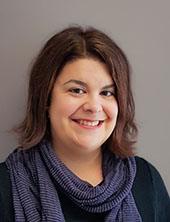Kinder Institute: “Poverty, Work, and Freedom“
The Kinder Institute at the University of Missouri, a JMC partner program, will be hosting Emily Nacol to speak on Locke’s 1697 “Essay on the Poor Law,” both to examine the significant role labor plays in Locke’s own schema for aiding England’s poor and to use this reading to reflect on contemporary links between welfare and work:
“In a February 2018 piece in the New York Times, entitled, “Who’s Able-Bodied Anyway?” Margot Sanger-Katz and Emily Badger explore how the category of “able-bodied” is a political term used to sort the so-called deserving from the so-called undeserving poor. They argue that “able-bodied” is an adjective that wields a dangerous power in determining eligibility for social programs and benefits, and that in political discourse, it has “retained its moral connotations but lost much of its historical context.” As they argue, “the term dates back 400 years, when English lawmakers used it the same way, to separate poor people who were physically incapable of supporting themselves from the poor who ought to be able to. Debates over poverty in America today follow a direct line from that era.”
My presentation will not trace this genealogy, but it will re-examine one short but provocative document from the context Sanger-Katz and Badger highlight: the English political theorist John Locke’s “Essay on the Poor Law.” Drawing on the work of social historians and political theorists who have read and interpreted this 1697 memorandum to the Board of Trade, I will look more closely at the significant role that labor plays in Locke’s schema for aiding England’s poor and use it to reflect on contemporary links between welfare and work. First, I will give a brief account of the early modern system of English poor relief that Locke is critically analyzing. Next, I will consider how Locke’s intervention in debates about seventeenth-century poor relief invites us to think about the relationship between trust and labor in his political theory more broadly. Locke argues that “true and proper relief” of the able-bodied poor must turn on evaluating their capacity for labor and then putting them to work. After examining the bases of Locke’s argument for the imperative to labor, I will return to the micro-practices of poor relief that he is resisting and trying to reform. This opens up alternatives to what might be our Lockean inheritance today, namely the tight association between welfare eligibility and demonstrable efforts to work. I will suggest that a critical reading of Locke’s “Essay on the Poor Law” opens a series of questions for us to consider: Is labor an appropriate criterion for political membership and inclusion? What are the costs and benefits of situating it as such? What would it mean to unsettle our apparent attachment to labor and work in the context of late capitalism?”
Friday, December 6, 2019 • 3:30 PM
Jesse Hall, Room 410 • University of Missouri
Free and open to the public
Click here for more information >>
 Emily Nacol is an Assistant Professor of Political Science at the University of Toronto, Mississauga. A political theorist whose research interests lie primarily in early modern political thought and political economy, she works especially on problems of risk and uncertainty in early modernity. Emily’s first book, An Age of Risk: Politics and Economy in Early Modern Britain, was published in 2016 by Princeton University Press, and she is currently working on a new project on politics, labor, and risk in eighteenth-century Britain. She has held research fellowships at Brown University’s Political Theory Project and the Cornell University Society for the Humanities. At Toronto, she teaches a range of courses in the history of political thought, as well as thematic courses on capitalism, commerce, and risk.
Emily Nacol is an Assistant Professor of Political Science at the University of Toronto, Mississauga. A political theorist whose research interests lie primarily in early modern political thought and political economy, she works especially on problems of risk and uncertainty in early modernity. Emily’s first book, An Age of Risk: Politics and Economy in Early Modern Britain, was published in 2016 by Princeton University Press, and she is currently working on a new project on politics, labor, and risk in eighteenth-century Britain. She has held research fellowships at Brown University’s Political Theory Project and the Cornell University Society for the Humanities. At Toronto, she teaches a range of courses in the history of political thought, as well as thematic courses on capitalism, commerce, and risk.
Learn more about Emily Nacol >>
![]()
![]() Follow us on Facebook and Twitter for updates about lectures, publications, podcasts, and events related to American political thought, United States history, and the Western political tradition!
Follow us on Facebook and Twitter for updates about lectures, publications, podcasts, and events related to American political thought, United States history, and the Western political tradition!
Want to help the Jack Miller Center transform higher education? Donate today.
